Lou Reed - 1942 - 2013
by Denzil Watson
published: 6 / 11 / 2013
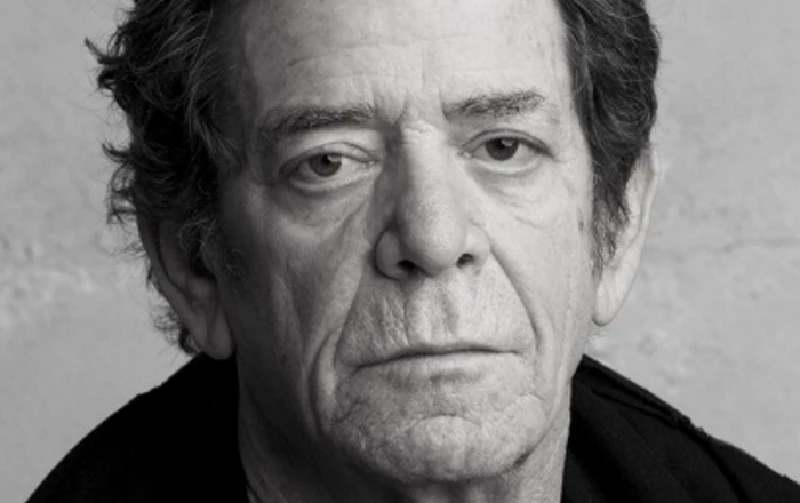
intro
Denzil Watson looks back on the career and life of Velvet underground front man and solo artist Lou Reed, who died at the age of 71 in October
When the news of Lou Reed's death from complications with his liver broke on Sunday 27th October circa 5 p.m. UK time, his untimely demise spread like wildfire round the internet. Within minutes tributes were pouring into his official Facebook site and Radio 6Music immediately revamped its schedule, and the man who gave us the 1980 album 'Growing Up in Public' was subject to a very public death. Ironically, back in 2001, many US radio stations falsely reported his death after receiving a hoax email from someone purporting to be from Reuters news agency. Sadly this time around the news was no such hoax, and arguably the greatest songwriter of the last 50 years had indeed passed away at his home in Southampton, New York. Needless to say, it was a very very different world when Lewis Allan Reed, born to a Jewish family in Brooklyn and having been brought up on Long Island, moved to New York in 1964 at the age of 22 to work as an in-house song-writer for Pickwick Records. Here, in his first group, the Primitives, he would become acquainted with a young Welsh musician called John Cale, with whom he would later go on to form one of the most influential rock groups of our times. Hooking up a year later with guitarist Sterling Morrison and drummer Maureen Tucker, the Velvet Underground were born in 1965 and very quickly came under the patronage of New York-based pop artist Andy Warhol. Integrating them into his multi-media art-house project 'The Plastic Exploding Inevitable', he also secured a record deal for the group with MGM off-shoot Verve Records. The Velvets' debut album 'The Velvet Underground and Nico' followed shortly in 1967 to muted indifference. Despite its relative commercial failure its irresistible combination of harsh guitars and dreamy melody lines, several of which were delivered by German singer Nico who joined at Warhol's invitation, have since made it a permanent resident of any Greatest Albums of All Time lists. Featuring some of the bands most famous songs including 'Run Run Run', 'All Tomorrow's Parties' and 'Venus in Furs', it was notable for Cale's distinctive viola drones and Reed's raw and graphic lyrics. While many of the bands at the time waxed lyrically about their drug- taking habits, nobody had penned anything quite as direct as 'Heroin', a harrowing tale of Reed's own(?) addiction. For years to come, Reed would remain indebted to Warhol for his patronage ("We went from sleeping on the floor - nothing - and then Andy took us in, which meant we got to eat fruit every night"), despite severing relationships with Warhol in September 1967. The band’s second LP 'White Light/White Heat' was an all together more abrasive affair, dominated by white noise walls of sound such as 'Sister Ray' and 'I Heard Her Call My Name'. Released in January 1968, it fared even less well commercially than its predecessor and tensions between Reed and Cale heightened. Cale left the group in early 1968 to be replaced on bass by Doug Yule. Work started on their third eponymously named album later that year. With Cale's impulsive and experimental tendencies now gone, what resulted was a far more melodic and gentler album. Cited by many fans as their favourite Velvets' album, it again spawned some of the band's most famous songs such as 'Pale Blue Eyes', 'I'm Set Free' and 'What Goes On'. Released in March 1969 it failed to make any commercial headway, despite the band spending the rest of the year touring. With MGM's patience with the group at an end by the turn of the year, 1970 saw Atlantic Records sign the group up for what was to be their fourth and final album. With Tucker on maternity leave Doug Yule's brother Billy was drafted in on drums. The resulting album, 'Loaded', is considered to be the band's most accessible and spawned classic tracks, 'Sweet Jane' and 'Rock'n'Roll'. By this time Lou Reed was completely disillusioned with the group's direction and lack of commercial success, and by the time the album came out in November 1970 Reed had already left the group three months earlier. To add insult to injury, on its release Reed discovered many of the songs had been tampered with and were some way from the form he'd intended them to be released in. The band subsequently disintegrated as the remaining founder members Sterling Morrison and Mo Tucker departed in 1971 and 1972, respectively. Inexplicably, Yule continued under the Velvet Underground name until early 1973, releasing 'Squeeze' which was a VU record in name only. After leaving the band, Lou spent a year working as a typist on $40 an hour at his dad's accounting company before signing to RCA to start his solo career in 1972. Recorded using session musicians including Rick Wakeman and other members of Prog rock band Yes, his eponymous solo debut album was given a lukewarm welcome despite revisiting a number of unreleased Velvets songs. It was later that year that one of Reed's career defining moments would arrive, however, with the release of his second album, 'Transformer'. Co-produced by David Bowie and Mick Ronson and recorded in London's Trident Studios, the album was a resounding commercial success and yielded some of his best known songs, including 'Perfect Day', 'Vicious' and 'Satellite of Love'. It was. however, the racy gender-bending NYC street narrative, a story reminiscent of his Velvets days, on 'Walk on the Wild Side' that proved to be the launching pad for his career to reach a wider audience than he'd previously reached with his former band, providing him with a Top 10 hit in the UK. Early in 1973 Reed was briefly married to Betty Kronstadt during the making of landmark album 'Berlin'. Effectively a rock opera, it was based around a troubled couple and touched on a number of Reed's reoccurring themes: prostitution, drugs, depression and suicide. Its heavy orchestral arrangements didn't lighten the mood, and it was subsequently given a fairly unfavourable reception by the press. Shortly after its completion he separated from his wife. Like so many of his works though it has since gone down in Lou Reed folklore as one of Reed's most accomplished works. In 1974, 'Sally Can't Dance' provided him with his biggest selling album to date, but left Reed disappointed by its flat production. A live album followed later in the year with 'Rock'n'Roll Animal' capturing Reed's now well-honed live show. With Reed's contract with RCA coming to an end in 1975, one of his parting gifts was 'Metal Machine Music'; over an hour of guitar feedback spread over four 16-minute tracks. Ridiculed by the critics and hailed by the avant-gardists as genius, it spelled an all-time low for his commercial success. Normal service was quickly re-established later that year with the mellow 'Coney Island Baby', only to follow it a year later with the disappointing 'Rock'n'Roll Heart' for his new label Arista. Fortunately 1978's 'Street Hassle' was very much a return to form and saw Reed getting back to what he was good at: documenting New York's various subcultures and street life. A double live album 'Take No Prisoners Live' followed later that year as the decade closed positively for Reed with 'The Bells', with respect to which critic Lester Bangs stated Reed had fulfilled his ambition to become a "great writer, in the literary sense." With a critical solo reputation now well established, Reed started the new decade disappointingly with 1980's 'Growing Up in Public'. As was the way with Reed's lengthy but up-and-down solo career, he made amends in 1982 with 'The Blue Mask', his eleventh solo album in as many years. With Reed hitting forty, song narratives had turned to settling down, having married British fashion designer Sylvia Morales two years earlier. The album was also notable for being the first of two studio albums utilising the not insubstantial talents of ex-Voidoids guitarist Robert Quine. Its follow-up 'Legendary Hearts' maintained the bar in 1983 while 'New Sensations' the year after saw a more light-hearted side of Reed's song-writing come to the fore as evidenced by 'I Love You, Suzanne' and 'My Red Joystick'. After that the albums began to flow less fast and furiously. A three year gap followed until 'Mistrial' hit the racks. Not the strongest album of his career, it was distinguished by Reed classic 'Tell It to Your Heart'. Reed released his first record for Sire in 1989 when he returned with 'New York'. An album that ensured he finished the 1980s on a high, and with his song writing mojo in the ascension. The album was to become a latter period Reed classic, again showcasing him doing what he does best; telling stories of downtown NYC as it is in his matter-of-fact Brooklyn drawl. In 1990 something extraordinary happened. Following the death of Andy Warhol in 1987, Reed reunited with his ex-Velvets' band-mate John Cale for 'Songs for Drella', an album that paid tribute to their former mentor (Warhol considered by many to be half Dracula, half Cinderella). With their working together for the first time in 22 years rumours started to circulate about a possible reunion of the classic line-up of the band. When the four did unite in France at one of the 'Songs for Drella' shows to share the stage for a rendition of Velvets' classic 'Heroin', it seemed only a matter of time. And so it came to pass. In 1992 the reformation was announced after Reed had got the release of his sixteenth solo album 'Magic and Loss' out of the way. An extensive European tour commenced in June 1993 in Edinburgh. It went on to take in the Czech Republic and a legendary meeting with the country’s first ever president, Vaclav Havel, for whom the band had been such an inspiration during his dissident days, hence the 'Velvet Revolution'. The band also managed to play five dates as the guests of U2 on their Zoo TV tour. The dates were deemed a success, but before a US tour could be firmed up Reed and Cale once again fell out. He also fell out with his second wife whom he divorced in 1994. Reed patched up his differences with his former band mates, and reunited with them in 1996 while being inducted into Rock and Roll’s Hall of Fame. Reed, along with Cale and Tucker, played 'Last Night I Said Goodbye to My Friend' in tribute to Sterling Morrison who had died the previous year, due to non-Hodgkin’s lymphoma. Later the same year Reed released 'Set the Twilight Reeling'. It included a moving tribute to Morrison ('Finish Line') and 'Sex with Your Parents (Motherfucker)', showing he’d lost none of his appetite to shock. In 1997 Reed, in collaboration with a veritable Who’s Who of Rock’n’Roll (including Bono, Bowie, Elton John and Shane McGowan) re-worked 'Transformer' favourite 'Perfect Day' for Children in Need. It scored him his first and only UK Number One single, and possibly the accolade of most popular wedding-day song in history. The last notable event of the 1990s was Timothy Greenwood-Sander’s documentary fittingly entitled 'Lou Reed: Rock’n’Roll Animal'. A year later the film and Reed were awarded a Grammy for ‘Best Long-Form Music Video’. The next decade would prove no less busy and even more varied than the previous one. It started with Reed performing before the Pope in Rome in 2000. Later the same year, 'Ecstasy', a concept album weighing in at an hour and a half and covering Reed’s past experiences with marriage and relationships, was well received by the critics. An even more heavyweight offering was to come in 2003 in the shape of 'The Raven', a double CD set based on an earlier project called 'Poe-Try' which was inspired by the works of the 19th century writer Edgar Allen Poe, whom Reed considered to be a kindred spirit. Besides featuring Reed and his band there were contributions, amongst others, from Bowie, Laurie Anderson and William Dafoe. The ambitious concept album received mixed reviews as did the ensuing world tour. Now a dedicated exponent of the ancient Chinese marshal art of T’ai Chi, 2007 saw Reed releasing what would be his twentieth and final solo album proper. 'Hudson River Wind Meditations' found Reed about as far away from his rock and roll roots as he could be with this collection of ambient meditation music. The year after he premiered his new group the Metal Machine Trio. The band performed free-form improvised instrumentals based around 1975’s 'Metal Machine Music'. The ensuing live performance was captured on live album 'The Creation of the Universe'. As the decade came to a close Reed’s career continued to be ever-varied. It included a guest appearance at Lollapalooza with Metallica, providing the voice of Maltazard in Luc Besson’s animated film 'Arthur and the Vengeance of Maltazard' and playing himself in Wim Wender’s 'Palermo Shooting' movie. On a personal note, 2008 saw Reed marry his long term partner, performance artist and musician, Laurie Anderson. Reed continued his ad hoc collaborations into the 2010s. He contributed vocals to 'Some Kind of Nature' on Gorillaz' third album 'Plastic Beach', began touring with the Metal Music Trio and most significantly, in 2011, collaborated with Metallica on a full-length "experimental metal" album entitled 'Lulu'. Sadly this was to be his final involvement with a full-length studio album. After a low-key year in 2012, Reed underwent a liver transplant in Cleveland, Ohio, in May 2013. Despite claiming, post-op, to be “bigger and stronger” on his official website, Reed died on October 27th 2013 from liver disease at the age of 71. Predictably the tributes began to pile in thick and fast as the world quickly digested the loss of the single greatest singer song-writer the planet has seen. Bowie described him simply as “a master.” Band-mate John Cale bemoaned the loss of his “school-yard buddy.” Iggy Pop described him as "a very genuine person." Bono, in his piece for 'Rolling Stone', identified his ability to "make music out of noise." Billy Idol referred to him as a man of "tough exterior" but with a "heart of gold." It was, however, the account of his last few days by his wife and soul-mate of the last twenty years, Laurie Anderson, that the most moving and poignant. Describing him as "a prince and a fighter", she told how he died "looking that the trees and doing the famous 21 form of t'ai chi." While his death leaves a massive hole in the alternative music scene his musical legacy looms large. Perhaps larger than any other single musician to walk this planet. While the likes of the Beatles and the Rolling Stones outsold the Velvet Underground many times over, as Brian Eno put it "the Velvet Underground's first album only sold a few thousand copies, but everyone who bought one formed a band." The list of bands influenced by the Velvet Underground and Lou Reed is endless; from big bands such as U2, Talking Heads, Roxy Music, Joy Division, the Strokes, David Bowie, REM, Television, the Jesus and Mary Chain and the Pixies through to the more obscure; The Modern Lovers, the Perfect Disaster, Spacemen 3, Sonic Youth, the Leather Nun, the Violent Femmes, Cabaret Voltaire, Galaxie 500 and just about every shoe-gaze band from the 1980s. Some legacy indeed. That sort of legacy doesn't just happen. It only follows on from someone who has demonstrated an extraordinary artistic and creative talent. And make no mistake, Reed did just that. Put aside the drug abuse and sleaze of the early 70's. Put aside his grouchy and often hostile behaviour towards the music press and their foot soldiers (on one occasion he famously he said he "wouldn't shit in Lester (Bang's) nose"). Put aside some of the many self-indulgent and unengaging live shows and lacklustre solo albums. It wasn't always good, but when it was good it was game-changingly good. His ability to tell it just how it was in his poetic New York City matter-of-fact drawl was unrivalled. Admittedly, over time, even telling it how it is can become a touch staid and boring. But, with New York for his muse providing an never-ending stream of interesting scenarios and his gift of being able to see beauty in the darkness and the despair, this was never going to happen with Reed. In his own words he "wrote songs to connect with [your] hearts and spirits." And connect he did. He was also an innovator, always looking to push the sonic envelope, but never afraid to come back to the beauty of a good melody. How many artists can boast a song-writing legacy that boasts songs as diverse as 'Pale Blue Eyes' and 'Metal Machine Music' in their canon? Reed was also a fan and supporter of the arts, constantly immersing himself in gigs and exhibitions in and around New York. Lou Reed was Rock'n'Roll and indeed had a Rock'n'Roll heart. He took many a walk on the wild side down the dirty boulevards and back-streets of New York City. And now he has left us his spirit that will live on forever in the city he loved. And in the hearts and minds of the thousands of alternative musicians his music has inspired to make music. And of course in the hearts of the multitude of fans he touched with his songs. That's some kind of legacy. In one of his many, many famous quotes he told how he hated the term RIP. Ironic, then, that so many people should be saying "Lou Reed RIP". So, I'm going to go for Lou Reed MAL (Magic and Loss).
profiles |
|
A Personal Tribute (2013) |
| Anthony Strutt pays personal tribute to the late Lou Reed |
| The Journalists and the Media (2013) |
| Lou Reed's Berlin (2008) |
| Lou Reed's Berlin (2008) |
live reviews |
|
Hammersmith Apollo, London, 1/7/2007 |
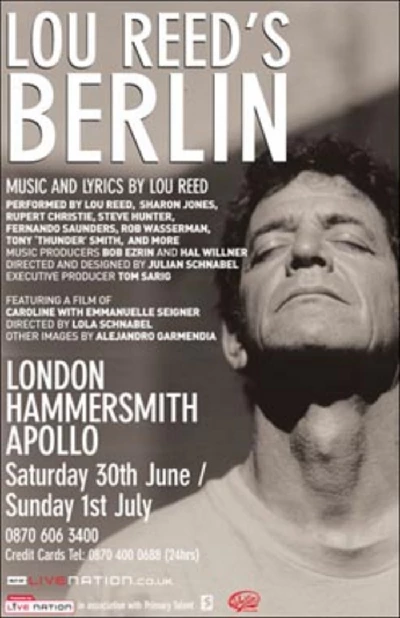
|
| Lou Reed has recently been touring Europe with his bleak early 1970's masterpiece, 'Berlin', and both a choir and brass and strings section. John Clarkson finds that it has lost none of and impact almost 35 years on from its original release and the New York rocker on fantastic form |
| Barbican, London, 28/5/2003 |
favourite album |
|
Rock 'n' Roll Animal (2010) |
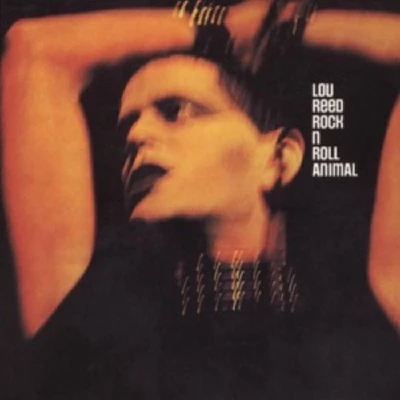
|
| Jeff Thiessen examines Lou Reed's classic 1974 live album, 'Rock 'n' Roll Animal' |
| Metal Machine Music (2010) |
| The Blue Mask (2002) |
features |
|
Lou Reed (2013) |
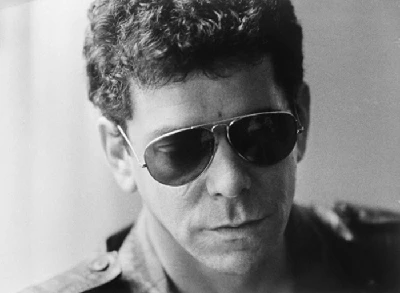
|
| John Clarkson writes of ten of his favourite songs in the solo career of the late Lou Reed |
| The Raven (2003) |
reviews |
|
Berlin : Live at St Ann's Warehouse (2008) |
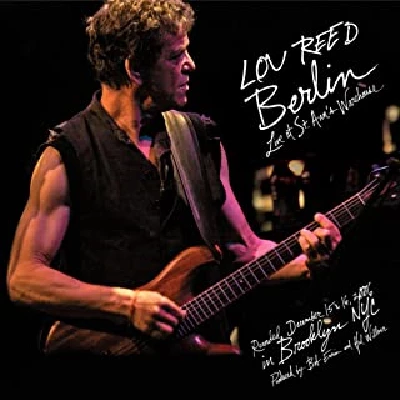
|
| Live reworking of Lou Reed's infamously controversial 'Berlin' album, which shows that Reed still has the power to enthral and shock |
| NYC Man The Ultimate Collection (2003) |
most viewed articles
current edition
Carl Ewens - David Bowie 1964 to 1982 On Track: Every Album, Every SongArmory Show - Interview with Richard Jobson
John McKay - Interview
Colin Blunstone - Thalia Hall, Chicago, 16/7/2025
Billie Eilish - O2 Arena, London, 10/7/2025
Bathers - Photoscapes 1
Visor Fest - Valencia, Spain, 26/9/2025...27/9/2025
Loft - Interview
Sir Tim Rice - Interview
Robert Forster - Interview
previous editions
Manic Street Preachers - (Gig of a Lifetime) Millennium Stadium, Cardiff, December 1999Heavenly - P.U.N.K. Girl EP
Beautiful South - Ten Songs That Made Me Love...
Boomtown Rats - Ten Songs That Made Me Love....
Peter Perrett - In Dreams Begin Responsibilities Interview Part One
Oasis - Oasis, Earl's Court, London, 1995
Trudie Myerscough-Harris - Interview
Coldplay - Wembley Arena. London, 16/8/2022
Prolapse - Interview
Pixies - Ten Songs That Made Me Love...
most viewed reviews
current edition
Davey Woodward - Mumbo in the JumboSick Man of Europe - The Sick Man of Europe
Lucy Spraggan - Other Sides of the Moon
Suzanne Vega - Flying With Angels
Amy Macdonald - Is This What You've Been Waiting For?
Phew, Erika Kobayashi,, Dieter Moebius - Radium Girls
Bush - I Beat Loneliness
Blueboy - 2
Alice Cooper - The Revenge of Alice Cooper
Cynthia Erivo - I Forgive You
Pennyblackmusic Regular Contributors
Adrian Janes
Amanda J. Window
Andrew Twambley
Anthony Dhanendran
Benjamin Howarth
Cila Warncke
Daniel Cressey
Darren Aston
Dastardly
Dave Goodwin
Denzil Watson
Dominic B. Simpson
Eoghan Lyng
Fiona Hutchings
Harry Sherriff
Helen Tipping
Jamie Rowland
John Clarkson
Julie Cruickshank
Kimberly Bright
Lisa Torem
Maarten Schiethart